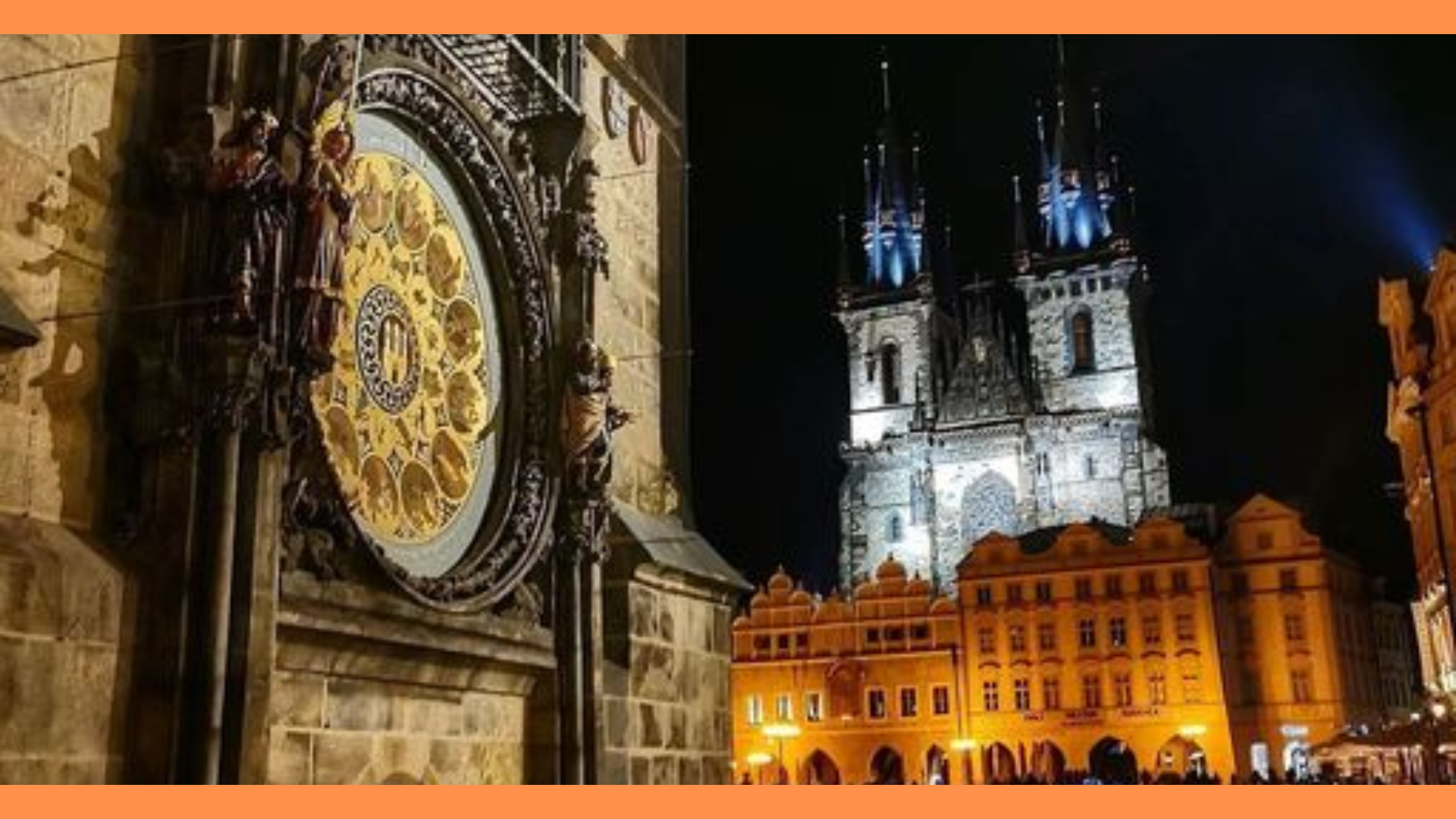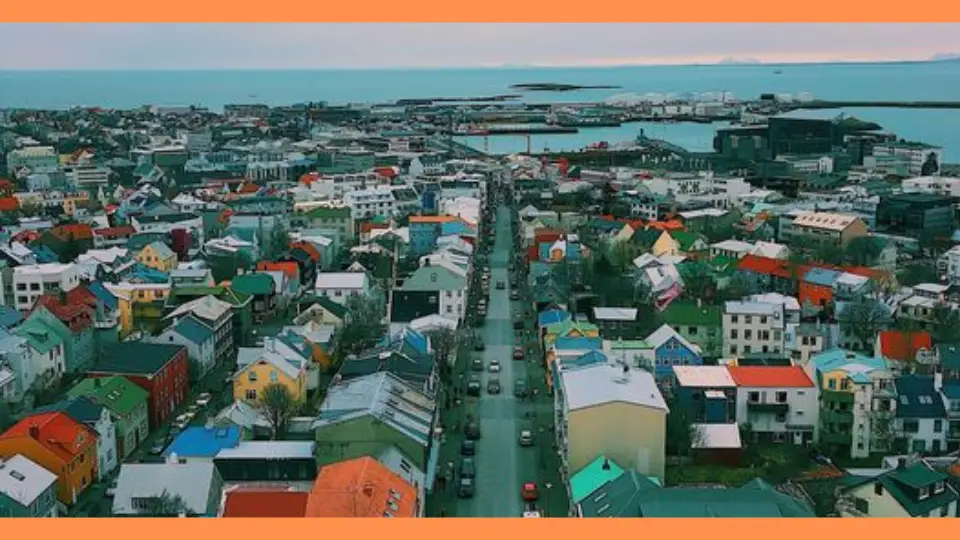Bavaria, a picturesque region in Germany, captivates travelers with its blend of historical landmarks, breathtaking natural beauty, and rich cultural traditions. From the enchanting Neuschwanstein Castle to the lively festivities of Oktoberfest, Bavaria promises a diverse array of experiences. This guide offers insights into must-see tourist destinations, delectable local dishes, practical travel tips, and unique activities that will ensure a memorable Bavarian adventure.
I. Introduction
Bayern, or Bavaria, is a region in Germany renowned for its rich history, stunning landscapes, and vibrant culture. From the fairy-tale castles that inspired Walt Disney to the lively beer halls of Munich, Bavaria offers an array of experiences that captivate travelers. This guide aims to help you navigate the must-see tourist destinations, savor the delicious Bavarian dishes, provide practical travel tips, and suggest unique experiences to make your trip unforgettable.
II. Tourist Destinations
Bavaria is home to an array of fascinating tourist destinations that cater to various interests. Explore historical landmarks like Neuschwanstein Castle and Nuremberg Castle, dive into the cultural hotspots of Munich and Bamberg, and enjoy the natural beauty of the Bavarian Alps and Lake Constance. Attend world-renowned festivals such as Oktoberfest and the Christkindlesmarkt for an authentic Bavarian experience.
1. Historical Landmarks
Neuschwanstein Castle
Neuschwanstein Castle, nestled in the Bavarian Alps, is one of the most iconic castles in the world. Built by King Ludwig II in the 19th century, its fairy-tale architecture inspired Walt Disney’s Sleeping Beauty Castle. To make the most of your visit, arrive early to avoid the crowds and book tickets in advance. The castle offers guided tours that delve into its history and the enigmatic life of King Ludwig II. Don’t forget to hike to Marienbrücke (Mary’s Bridge) for the best panoramic views of the castle and surrounding landscape.
Nuremberg Castle
Nuremberg Castle is a testament to the medieval history of Bavaria. Dominating the skyline of Nuremberg, this fortress played a crucial role in the Holy Roman Empire. Visitors can explore the castle’s museums, which showcase artifacts from the Middle Ages, and climb the Sinwell Tower for a breathtaking view of the city. The castle grounds also offer a beautiful garden, perfect for a leisurely stroll.
Residenz in Munich
The Residenz in Munich was the royal palace of the Wittelsbach monarchs and is one of the most extensive and ornate palaces in Europe. The palace complex includes several museums, such as the Treasury, which houses a stunning collection of crown jewels, and the Antiquarium, a grand hall filled with classical sculptures. Tickets can be purchased online, and guided tours are highly recommended to fully appreciate the opulent rooms and their historical significance.
2. Cultural Hotspots
Munich
Munich, the capital of Bavaria, is a cultural hub brimming with historical and modern attractions. Start your exploration at Marienplatz, the central square, where you can watch the famous Glockenspiel performance at the New Town Hall. Art enthusiasts should visit the Alte Pinakothek, which houses masterpieces by European painters, and the Deutsches Museum, the world’s largest museum of science and technology. No visit to Munich is complete without a stop at the Hofbräuhaus, the historic beer hall where you can enjoy traditional Bavarian music, food, and, of course, beer.
Bamberg
Bamberg is a UNESCO World Heritage Site known for its well-preserved medieval architecture and picturesque old town. Wander through the narrow streets and discover landmarks like the Bamberg Cathedral and the Altes Rathaus (Old Town Hall), which straddles the Regnitz River. Bamberg is also famous for its breweries, particularly the Rauchbier (smoked beer), which offers a unique taste experience. Visit local breweries like Schlenkerla to sample this distinctive beer and enjoy the town’s cozy atmosphere.
3. Natural Attractions
The Bavarian Alps
The Bavarian Alps are a paradise for outdoor enthusiasts, offering activities year-round. Garmisch-Partenkirchen is a popular destination for skiing and snowboarding in winter, while in summer, it transforms into a hiker’s haven. Take a cable car ride to the top of Zugspitze, Germany’s highest peak, for stunning views and a chance to play in the snow even in summer. The region also offers numerous hiking trails, ranging from easy walks to challenging mountain climbs.
Lake Constance (Bodensee)
Lake Constance, bordered by Germany, Austria, and Switzerland, is a beautiful destination for those seeking relaxation and outdoor activities. The lake’s crystal-clear waters are perfect for swimming, sailing, and boating. Explore charming lakeside towns like Lindau, with its picturesque harbor and lighthouse, or Meersburg, known for its vineyards and medieval castle. Boat tours are a great way to see the lake and its surrounding scenery, offering stops at various attractions along the way.
4. Festivals and Events
Oktoberfest
Oktoberfest, held annually in Munich, is the world’s largest beer festival, attracting millions of visitors from around the globe. The festival dates back to 1810 and features massive beer tents operated by Munich’s breweries, each offering their own special brews. Traditional Bavarian music, folk dances, and hearty food like pretzels, sausages, and roast chicken create a festive atmosphere. To make the most of your Oktoberfest experience, arrive early, dress in traditional attire (Lederhosen for men and Dirndl for women), and be prepared for a lively and crowded event.
Christkindlesmarkt in Nuremberg
The Christkindlesmarkt in Nuremberg is one of the oldest and most famous Christmas markets in Germany. Held in the Hauptmarkt square, the market is known for its beautifully decorated wooden stalls selling handcrafted gifts, ornaments, and festive treats. Must-try foods include Nürnberger Lebkuchen (gingerbread) and Glühwein (mulled wine). The market’s enchanting atmosphere, with twinkling lights and festive music, makes it a magical place to visit during the holiday season.
III. Delicious Dishes
Bavarian cuisine is a culinary delight, offering traditional dishes that reflect the region’s rich heritage. Savor classics like Weißwurst with pretzels, hearty Schweinshaxe, and tangy Sauerbraten. Pair these meals with local beers and Franconian wines, and indulge in desserts like Apfelstrudel and Bavarian cream for a complete gastronomic experience.
1. Traditional Bavarian Cuisine
Weißwurst and Pretzels
Weißwurst, a traditional Bavarian sausage made from minced veal and pork back bacon, is typically enjoyed with a freshly baked pretzel and sweet mustard. This dish is traditionally served before noon, as it was originally made without preservatives. In Munich, head to Viktualienmarkt or a local beer garden to try the best Weißwurst. Pair it with a refreshing glass of Bavarian beer for a classic culinary experience.
Schweinshaxe (Pork Knuckle)
Schweinshaxe is a hearty Bavarian dish consisting of a roasted pork knuckle, typically served with potato dumplings and sauerkraut. The meat is slow-cooked until it is tender and the skin becomes crispy. Popular restaurants like Haxnbauer and Augustiner Keller in Munich are renowned for their Schweinshaxe. This dish is a must-try for meat lovers, offering a taste of traditional Bavarian comfort food.
Sauerbraten
Sauerbraten, a pot roast marinated in vinegar and spices, is a beloved Bavarian dish often served with red cabbage and potato dumplings. The marinade tenderizes the meat and infuses it with rich flavors. For an authentic experience, visit Zum Spöckmeier or Der Pschorr in Munich. These establishments are known for their delicious Sauerbraten, offering a cozy setting to enjoy this classic meal.
2. Bavarian Beverages
Beer Culture
Bavaria is synonymous with beer, boasting a rich brewing tradition that dates back centuries. The region is home to numerous famous breweries, such as Hofbräuhaus and Augustiner, each offering a variety of beers from light lagers to dark ales. Beer gardens, like the Englischer Garten in Munich, provide a quintessential Bavarian experience where you can enjoy a cold brew under chestnut trees. Don’t miss the opportunity to visit a local brewery for a tour and tasting session to learn more about Bavarian beer-making techniques.
Franconian Wine
While Bavaria is best known for its beer, the Franconian region in northern Bavaria is famous for its wine. Franconian wine, particularly the Silvaner and Müller-Thurgau varieties, is renowned for its quality and unique flavor. The Bocksbeutel, a distinctive flattened bottle, is a symbol of Franconian wine. Wine tasting tours in Würzburg and the surrounding vineyards offer a delightful way to explore this lesser-known aspect of Bavarian culture. The annual Würzburg Wine Festival is a highlight, featuring local wines, food, and entertainment.
3. Desserts
Apfelstrudel
Apfelstrudel, a traditional Viennese pastry popular in Bavaria, is made with thin layers of dough filled with spiced apples, raisins, and cinnamon. It is typically served warm with vanilla sauce or whipped cream. Café Frischhut and Café Kreutzkamm in Munich are famous for their delicious Apfelstrudel. This dessert is a perfect way to end a meal, offering a taste of Bavarian comfort.
Bavarian Cream
Bavarian Cream is a rich, custard-based dessert often flavored with vanilla and served with fruit or berry sauce. Its silky texture and delicate flavor make it a beloved treat. You can find Bavarian Cream at traditional bakeries and cafes, such as Dallmayr or Café Luitpold in Munich. Enjoy this creamy delight with a cup of coffee for a quintessential Bavarian dessert experience.
IV. Practical Tips
Navigating Bavaria efficiently can greatly enhance your travel experience. Utilize the region’s robust public transport system, or consider renting a car for more flexibility. Choose accommodations that fit your preferences, learn basic German phrases for smoother interactions, and familiarize yourself with local currency and tipping customs to ensure a seamless journey.
1. Transportation
Public Transport
Bavaria boasts an efficient public transportation system, including trains, buses, and trams. The Deutsche Bahn (DB) operates regional and long-distance trains, connecting major cities and towns. For unlimited travel within Bavaria, consider purchasing a Bayern Ticket, which offers excellent value for families and groups. Apps like DB Navigator provide real-time schedules and ticketing options. In cities like Munich and Nuremberg, the U-Bahn (subway) and S-Bahn (commuter train) are convenient for getting around.
Driving in Bavaria
Renting a car is a great way to explore Bavaria’s scenic countryside and charming villages at your own pace. The region is known for its well-maintained roads and picturesque driving routes. The Romantic Road, a scenic drive from Würzburg to Füssen, passes through medieval towns and offers stunning views of the Bavarian Alps. When driving in Bavaria, remember to follow local traffic regulations and always carry your driver’s license, rental agreement, and insurance documents.
2. Accommodation
Types of Lodging
Bavaria offers a wide range of accommodation options to suit different preferences and budgets. From luxurious hotels and charming guesthouses to vacation rentals and hostels, there is something for everyone. Unique stays, such as sleeping in a castle or a traditional farm stay, provide memorable experiences. Websites like Booking.com and Airbnb can help you find and book the perfect accommodation for your trip.
Popular Regions
Choosing where to stay depends on your interests and itinerary. Cities like Munich and Nuremberg offer easy access to major attractions, dining, and nightlife. If you prefer a more tranquil setting, consider staying in smaller towns or rural areas. Regions like the Bavarian Forest and the Allgäu Alps offer beautiful landscapes and outdoor activities. Each area has its own charm and provides different experiences.
3. Language Tips
Basic German Phrases
While many Bavarians speak English, learning a few basic German phrases can enhance your travel experience and show respect for the local culture:
Guten Tag (Good day)
Bitte (Please)
Danke (Thank you)
Entschuldigung (Excuse me)
Sprechen Sie Englisch? (Do you speak English?)
Language Etiquette
Starting interactions with a polite greeting in German is appreciated. If you need help or directions, approach locals with a friendly smile and ask politely. Bavarians are generally warm and welcoming, especially if you make an effort to speak their language, even if it’s just a few words.
4. Money Matters
Currency and Payments
Bavaria, like the rest of Germany, uses the euro (€). Credit and debit cards are widely accepted in hotels, restaurants, and shops, but it’s advisable to carry some cash for small purchases or places that don’t accept cards. ATMs are readily available in cities and towns. Notify your bank of your travel plans to avoid any issues with card transactions.
Tipping Culture
Tipping in Bavaria is not obligatory, as service charges are usually included in the bill. However, it is customary to leave a small tip for good service. In restaurants and cafes, rounding up the bill or leaving about 5-10% is appreciated. For taxis, rounding up to the nearest euro is common practice. In hotels, a few euros for housekeeping staff and porters is a nice gesture.
Bavaria, with its enchanting castles, vibrant cities, stunning natural landscapes, and rich cultural heritage, offers a wealth of experiences for travelers. Whether you’re exploring the historic landmarks, savoring traditional Bavarian cuisine, participating in outdoor activities, or immersing yourself in local traditions, there is something for everyone in this diverse region. Use this guide to plan your trip and make the most of your time in Bavaria. Enjoy the warm hospitality, beautiful scenery, and unforgettable memories that await you in this captivating part of Germany. Prost!










